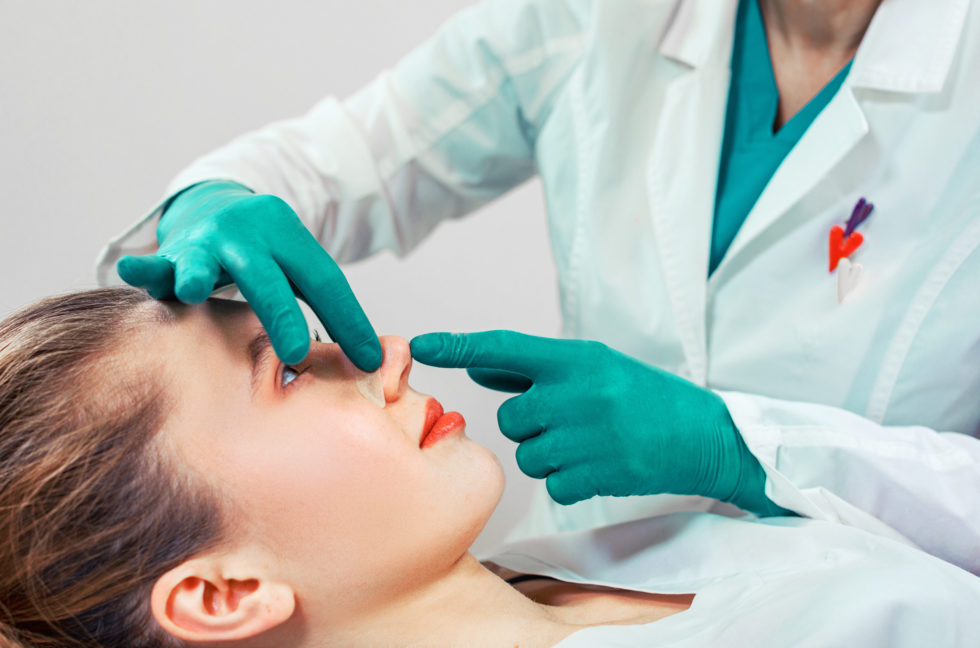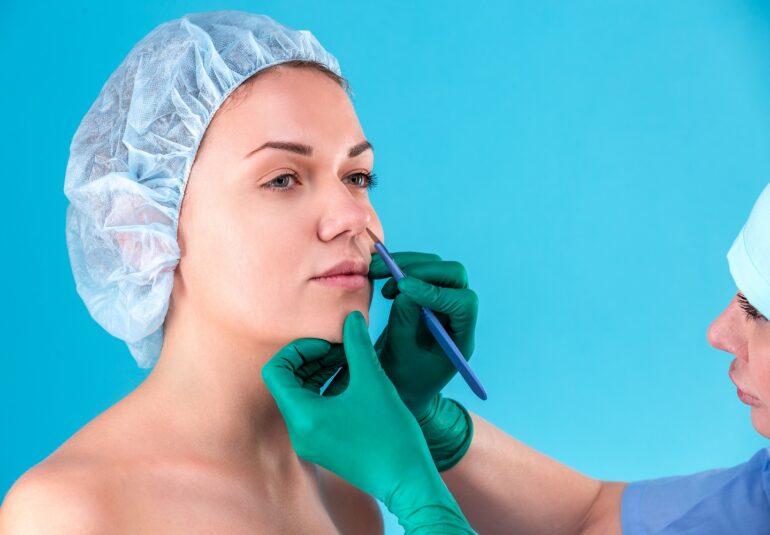
How do I prepare for a nose correction?
The human nose enables a person first of all to breathe. This is its basic, but not only, function. The nose protects us from viruses, bacteria and pollutants in the air. It is the perfect filter. It is thanks to it that we can smell odours. Together with the sinuses, it affects the tone and timbre of the voice. Many people have to deal with the problem of improper construction of the nasal septum, side walls of the nose or improper size of the wings. Then, breathing becomes a nightmare, and rescue should be sought in nasal surgery. Nose correction is also performed for other reasons – we are talking about aesthetic problems, with which many people struggle. How to prepare for a nose job? What does the procedure look like and how long does it take to recover? We will also tell you where is the best place to have your nose surgery done.
When do we perform nose surgery?
Plastic surgery on the nose is called rhinoplasty. It is usually performed in two cases:
- to improve the function of the nose
– It is a so-called functional surgery related to the abnormalities of the nose, which aims to improve the breathing, correct the structure of the nose or septum and change the size of the wings.
- to improve the appearance of the nose
– It is performed for people who have aesthetic problems in the form of:- the size of the nose
- the width of the nose
- the shape of the tip of the nose
- asymmetry
- the profil with prominent hump or concavity at the ridge
- too large, too wide or protruding nostrils
How to prepare for a nose job?
The first step is to have the necessary required tests indicated by your doctor. The most commonly ordered tests include:
- morphology
- urinalysis
- blood group test
- ECG
- vaccination against hepatitis B
It is imperative that you inform your doctor about your chronic diseases and health problems prior to any planned nose surgery. In particular, diseases such as diabetes, asthma, allergies, hypertension and intolerance to anaesthesia. Just before the operation, it is necessary to talk to the anaesthesiologist about the medicines you are taking, your medical history and your reaction to anaesthesia in previous operations.
Before the planned surgery it is also recommended to perform an endoscopic examination of the inside of the nose, as well as rhinometry, i.e. checking the nasal patency. Before the surgery, medical documentation is made, which also includes a set of photographs of the nose.
One month before the planned surgery, dietary supplements should be discontinued, as they have an unpredictable effect on blood clotting and on anaesthesia. Two weeks before the procedure, aspirin and drugs with acetylsalicylic acid should be discontinued, as they reduce blood clotting. Medicines that increase blood clotting, such as contraceptive pills, should also be discontinued. It is also recommended to reduce or completely stop smoking cigarettes 2-4 weeks before the procedure.
Before coming to the clinic you should wash off your make-up and not apply any cosmetics to your body.
Contraindications to nose surgery
Contraindications to nasal surgery may include the following:
- diagnosed anaemia
- thromboembolic diseases
- untreated hypertension
- purulent inflammation of the sinuses and face
- diabetes
- infections – diseased tooth, cold, herpes
The rhinoplasty will not be performed in patients with contraindications to the administration of anaesthetic. The procedure will also not be carried out in people whose growth and maturation process has not yet finished. Women, due to the increased risk of haemorrhage, should not undergo rhinoplasty either just before or during menstruation.
How does the nose surgery process work?
The course of nose surgery depends on the type of method chosen:
- open method
– allows easier modelling of the nose, giving more possibilities and better results
– it involves an incision in the tissue, which leaves a scar and swelling after the procedure
– is considered a more invasive method
- closed method
– does not require incision of tissues, which makes it less invasive, but due to its limited possibilities it cannot always be used
In order to perform the operation, the patient must report to the clinic on the day of the operation, where they will stay for one night. The operation takes place under general anaesthesia, so it is the anaesthetist who makes the final decision on its performance. Plastic nose surgery takes about two hours. After the nose surgery, the patient must stay in hospital for a minimum of one day.
During rhinoplasty most of the incisions are made inside the nose which guarantees invisibility of scars. Often, however, the surgeon must also incise the nasal pillar, which makes it possible to lift the skin and conduct the operation under visual control. Moreover, this surgical technique is considered to be the best in terms of predictability of surgical results.
Recovery – or what to expect after the surgery?
Postoperative swelling of the nose and face usually subsides after a few days. Serous leakage from the nose, slight bleeding and bruises on the lower and upper eyelids also occur. The patient returns to a normal appearance after a period of time, which is one month. The total time needed for the nose to heal and shape is about six months.
Avoid overheating and cold, as well as sports, exercise or saunas. Be careful not to mechanically damage your nose – any trauma may slow down the healing process. You should also not forget about regular check-ups scheduled by your doctor.
How much does a nose surgery cost and where is the best place to get it done?
Statistics clearly show that plastic surgery of the nose is one of the three most frequently performed cosmetic surgery procedures. Next on the podium are liposuction and breast surgery. The cost of the operation depends on the prestige of the clinic, as well as the city and the country where the procedure will take place. For the time being, the most favourable prices for nose corrections can be found in the Czech Republic.


